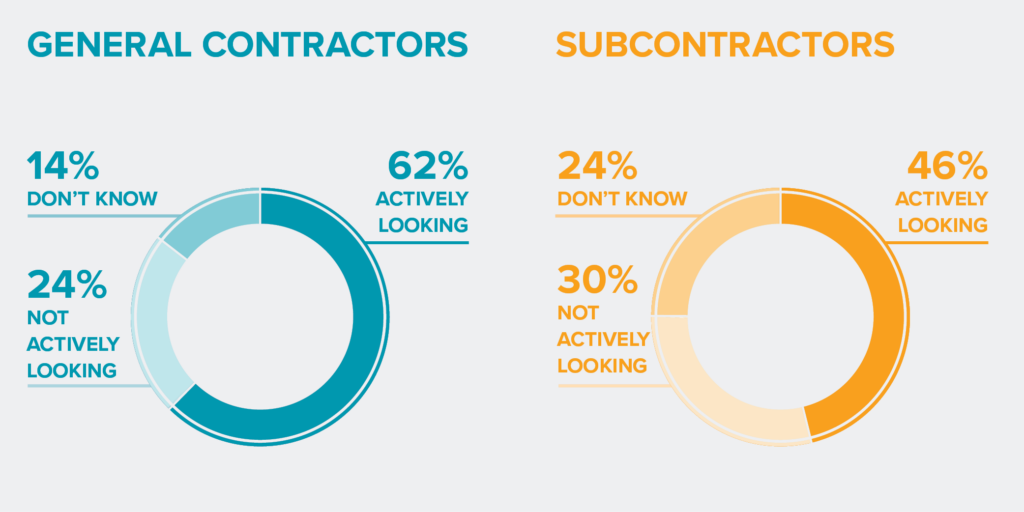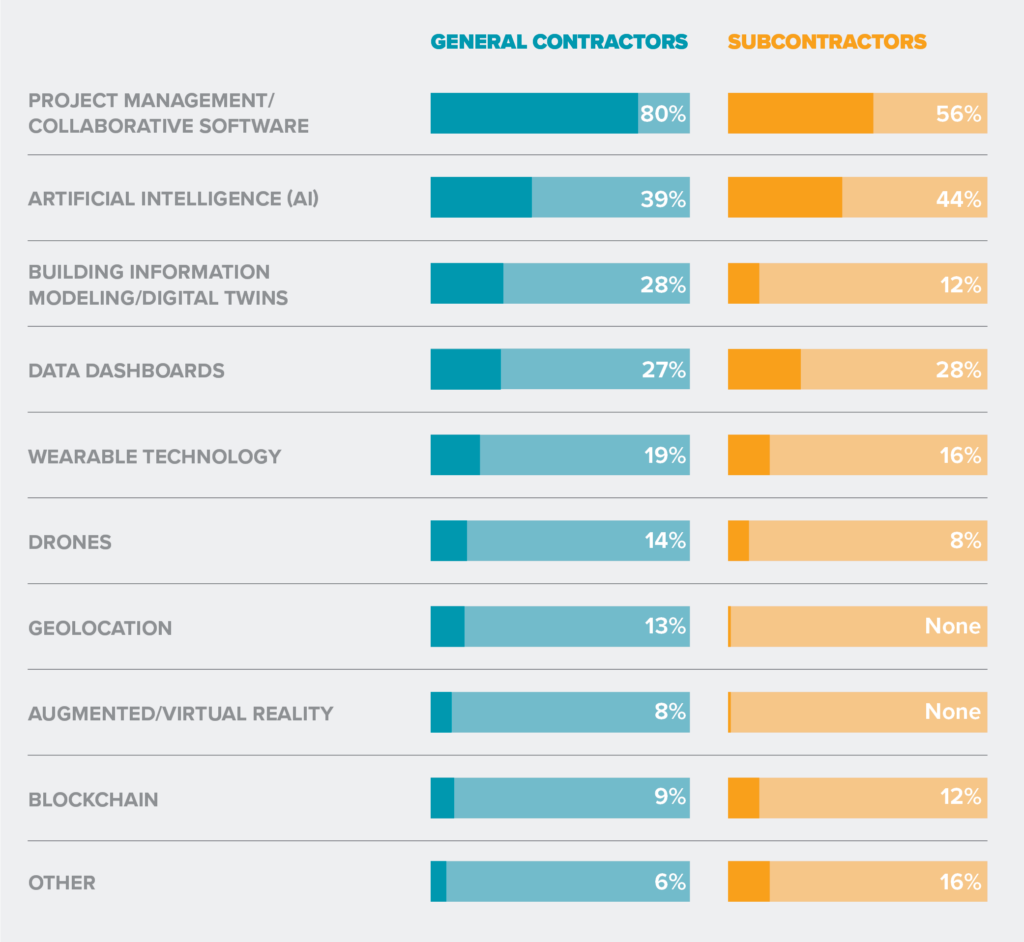What do you think of when someone says the word “technology”? I would expect different people to answer uniquely based on their personality, brand loyalty, how they utilize technology in their everyday lives, and the buzz-worthy technology trend today.
The construction industry has typically been late adopters of new technologies, as one executive put it to me: “Let everyone else figure out how it is supposed to work, and we can then adapt it into construction.” This sentiment is furthered by Grassi’s Construction, Architecture & Engineering 2024 Conditions and Outlook Report, when asked if construction companies are planning to invest in technology through 2024 and into 2025, here are the responses:

For the 62% of general contractors and 46% of subcontractors who are actively looking, the types of technologies they are considering are:

Nothing is trendier right now than artificial intelligence (“AI”); it bleeds into every conversation. When the same executive was asked about his company’s AI plans, he estimatedit to be 18 to 24 months away for the construction industry. However, for general contractors and subcontractors, it’s the second-ranked technology to invest in.
There is no question that contractors who don’t use AI will lose projects to those who do. The following are some business use cases that the construction industry should consider as to how AI will impact the construction industry:
- Cost reduction – the most obvious consideration when discussing rolling out an AI program across a construction company is how much it will cost and the return on investment. AI can give contractors more accurate cost estimating for jobs and companywide budgeting and forecasting.
- Design and planning – AI modules in the design process can efficiently create and optimize building designs. For example, Building Information Modeling (“BIM”) has been used by the construction industry for years; now adding an AI component, we expect to see more accurate modeling and forecasting.
- Project management – AI can enhance project management by utilizing predictive analytics to anticipate and mitigate potential issues by optimizing the construction schedule. AI will be able to analyze the data from past projects, current resources, and external factors (weather patterns for example) to create more accurate and efficient project schedules. Project managers need to be in tune with these systems, as they can continuously adjust timelines as the project progresses, considering events in real-time.
- Resource allocation – there are only so many resources a construction company can deploy on a project. Utilizing AI on a project will help the contractor optimize the distribution of labor, equipment, and materials across different phases of a project and/or across multiple projects. It can predict when and where resources will be needed, reducing downtime and improving overall efficiency.
- On-site automation – the skilled labor shortage has been well documented and discussed for years; AI can supplement what trades we have as repetitive tasks, such as bricklaying, welding, and material handling, can be automated. Further, while autonomous construction vehicles and equipment have been around for a few years, AI can enhance fleets with real-time “decision-making.”
- Safety – there has never been a greater emphasis on having safe job sites than now. AI can enhance the contactor’s protocols in a variety of ways. Wearable technologies are nothing new to the construction industry, but AI can improve how the contractor tracks laborer health and fatigue. Further, AI-powered monitoring systems will be able to detect hazards and prevent accidents on the job sites
- Quality control – waste has always been an inevitable part of construction, from broken sheetrock to defective curtainwall components. While AI will not entirely eliminate waste from a project, there is an opportunity to drastically cut down on this as computer vision systems can be dispatched to inspect work quality and identify defects in real-time. A little further down the road, AI also presents an opportunity to monitor a project’s data to monitor structural integrity.
- Sustainability – owners are looking to the construction industry for methodologies to build in a more energy-efficient, eco-friendly environment. AI can assist contractors in developing energy-efficient designs and ways to install materials. Another consideration is integrating AI into smart building systems to help monitor energy consumption and improve resource management.
AI is not just a tool; it’s presenting an opportunity for the construction industry to build better. It promises higher gross margins and increased profitability through fewer delays, more insights into costs and better project outcomes. This potential should inspire optimism and a proactive approach to AI adoption. But keep in mind, successful implementation and utilization of AI will require significant investment in terms of dollars and training, as well as a shift in management practices to leverage these new capabilities effectively.

